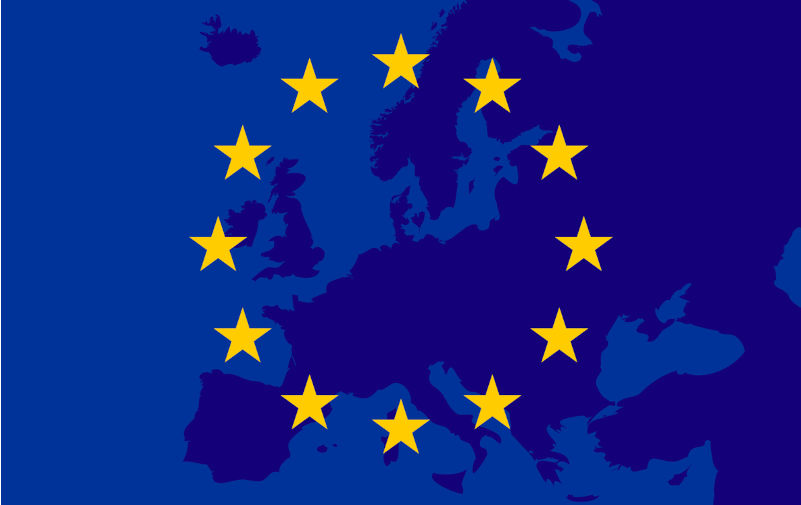The European Idea is anchored by the desire to banish war from the continent forever and foster collective development by creating a quasi-federated Europe. This idea is embodied in the step-by-step creation of the European Union (EU). That idea today looks exceptionally compromised, not least due to growing European divergence about how the EU’s best interests can be secured. Moreover, despite its fundamentally destabilising impact, American power ruthlessly shaping this outcome is compliantly welcomed by European elites. Any “Euro-tiger” image once projected by the EU in its prime has now vanished.
In October last year, I argued that history visibly explains how “the destructive militaristic culture of the Atlantic alliance” that Professor Kishore Mahbubani abhors, stands on the shoulders of an ingrained, Western Warring States experience reaching back well over a thousand years, which followed the collapse of the Western Roman Empire in 476 AD. That dismal culture is today sustained and shaped, above all, by the increasing American embrace of forbidding warfare as a primary means to maintain its messianic ambitions as a global hegemon”.
In fact, after two horrific World Wars in the 20th century, Europe demonstrated more than ever before, how it has learned that ending continental warfare is the paramount concern. Immense strides have been made in turning this aspiration into reality.
First came the European Coal and Steal Community, created in 1951, followed by the establishment of the European Community (EC) in 1958. Today’s EU, based on Treaties approved by all member states, was fully established by 2009.
There are 44 countries in Europe (West of the Ural Mountains) today and 27 of these are members of the EU. Britain joined the EC in 1973 and then voted to leave the EU in 2016 prior to officially exiting in 2020. Ten countries have formally expressed a wish to join the EU.
Despite this manifest, extended success in securing Europe against the habitual resort to terrible warfare that has plagued it for over a thousand years, Europe itself is now curating a grim, American-shaped, unravelling of this achievement. How on earth has this been allowed to happen?
In a recent article, Norwegian Professor Glenn Diesen put his finger on the pivotal (American) answer. All Washington wants, and has wanted, he says is, hegemony over Europe and it has it now like never before, while the real losers are the Europeans. Diesen also spells out: why this should never have happened; and how the US made sure it did:
George Kennan predicted in 1998 that when conflicts eventually start as a result of NATO expansionism, then NATO would be celebrated for defending against an aggressive Russia:
“There was no reason for this whatsoever. No one was threatening anybody else. This expansion would make the Founding Fathers of this country turn over in their graves…. Of course there is going to be a bad reaction from Russia, and then [the NATO expanders] will say that we always told you that is how the Russians are —but this is just wrong.”
Within the West, it has been nearly impossible to warn against the predictable collapse of European security. The only acceptable narrative has been that NATO expansion was merely “European integration”, as countries in the shared neighbourhood between NATO and Russia were compelled to decouple from the largest state in Europe. It was evident that redividing the continent would recreate the logic of the Cold War, and it was equally evident that a divided Europe would be less prosperous, less secure, less stable, and less relevant in the world. Yet, arguing for not dividing the continent is consistently demonised as taking Russia’s side in a divided Europe. Any deviation from NATO’s narratives comes with a high social cost as dissidents are smeared, censored and cancelled. The combination of ignorance and dishonesty by the Western political-media elites has thus prevented any course correction.
Looking back over the last 30 years we can see how Washington, determined to cement its global hegemony after winning the Cold War with the USSR:
- Watched over the winding-up of the Warsaw Pact and the reduction of the USSR to its Russian core by 1991;
- Restarted the Cold War, as a US-NATO-provoked hot war between Russia and Ukraine in 2022;
- While forbidding all mention of provocation;
- All along swelling the ranks of an increasingly aggressive NATO with obsessive former Warsaw Pact members and now Finland and Sweden;.
- With the result that Europe, led by the US, reverted to horrendous warfare;
- And a multi-decade interregnum came to a close.
Those former Warsaw Pact members joining the EU and NATO harboured understandable anti-USSR sentiments. Certain Russia-loathing states have, however, wielded inordinate influence within the EU, whose primary members have compromisingly allowed this. The most bitter examples have at times become an anti-Russian tail wagging the EU dog. This has been uncommonly pleasing for Washington as it set out to sort out Russia once and for all (see above).
Even better, the leading EU states, and especially Germany, have credulously averted their gaze as the US ridiculously blamed Russia for blowing up the vital Nord Stream pipeline, when all plausible evidence points to Washington having orchestrated this destruction. Meanwhile, the US is making huge profits by providing far more expensive, substitute American energy supplies to the EU, as EU households and its manufacturing base are gravely hit by increased costs.
And now, less than a month into the second Trump administration in Washington, the Telegraph reports that “Denmark is in crisis mode” after a recent aggressive phone call from Donald Trump to the Prime Minister in Copenhagen demanding to buy Greenland, while the EU establishment essentially maintains radio-silence.
Christine Loh lately described Donald Trump’s return as a “gloves off reset” adding that: “The age-old Chinese proverb, ‘Two tigers cannot share one mountain’ aptly describes the bi-polar dynamics of US-China relations”.
Over a month ago, attentive Chinese commentators in Hong Kong argued convincingly that certain prominent European leaders are marching so closely in step with the American worldview, they appear to have shed their ability to understand and advance the fundamental best interests of Europe. They recurrently come across as singular cheer-leaders for the world’s paramount rogue superpower. Polarised voters to the right and left in Europe increasingly share this view. These voters could be forgiven, too, for presuming that any Euro-tiger image once projected by the EU in its prime is now unequivocally missing-in-action.
Richard Cullen is an Adjunct Professor in the Faculty of Law at the University of Hong Kong. He was previously a Professor in the Department of Business Law and Taxation at Monash University in Melbourne, Australia.

